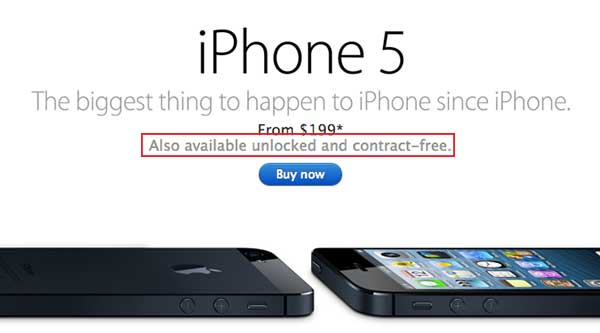A petition filed with the White House's "We the People" online registry, which is scheduled to end in two days, looks to bring awareness to a U.S. federal rule that makes it illegal for owners of certain smartphones to unlock their handsets.
Update: The petition reached 100,000 signatures early Thursday morning.
The petition takes aim at an October 2012 decision by the Librarian of Congress, which dissolved an exemption to the Digital Millennium Copyright Act (DMCA) that allowed users to freely unlock their mobile phones. As of Jan. 26, 2013, unauthorized unlocking of all newly purchased phones became illegal.
In an interview with AppleInsider, the White House petition's creator, Sina Khanifar, said the decision to alter DMCA rules is an overall negative for U.S. consumers.
Cellular providers "lock" the phones they sell to their proprietary network bands to stop people from using a competing carrier's service. The practice is meant in part to ensure subscription revenues from customers who purchased subsidized hardware, like the iPhone.
Khanifar, who frequently travels to Europe from San Francisco, found cell phone locking a nuisance and, more importantly, a financial burden.
"Anyone who travels internationally, and most people do at some point, you won't be able to take your cell phone with you," he said. "Trying to use it with the existing roaming fees that carriers charge is almost impossible because they're so exorbitant."
He goes on to note that without the ability to unlock phones, those looking to resell their old units through services such as Craiglist will only be able to address a limited portion of the market. The new stipulation not only drops values in the second-hand market, but also hinders buyers from using the handsets properly on their network of choice, Khanifar said."We ask that the White House ask the Librarian of Congress to rescind this decision, and failing that, champion a bill that makes unlocking permanently legal."
"Not being able to unlock your phone means that you have to basically buy a new device," he said. "That makes it harder for people to change, it gives people less choice in which carrier they're on, and increases the cost affecting them."
The petition requests that "the White House ask the Librarian of Congress to rescind this decision, and failing that, champion a bill that makes unlocking permanently legal."
Khanifar has measured ambitions as it pertains to the petition. He understands that even if the minimum 100,000 signatures are garnered, the White House is not likely to take swift action in overturning the Librarian of Congress' decision.
"I think the petition is helping create awareness on this issue," Khanifar said. "It just shows that people are really interested and motivated by this. This is part of a process of getting the word out there and helping convince [lawmakers] that this is something people care about."
As of this writing, the petition stands at nearly 93,000 signatures.
 Mikey Campbell
Mikey Campbell







-m.jpg)






 Malcolm Owen
Malcolm Owen
 Charles Martin
Charles Martin



 William Gallagher
William Gallagher
 Christine McKee
Christine McKee
 Marko Zivkovic
Marko Zivkovic









20 Comments
It is time for carriers to just sell their phones with a lease or finance contract. If someone leaves them then the phone user must fulfill the contract by paying the full principle or residual value of the phone. They must stop saying the phone is discounted and the user will owe nothing if they stay in their contract for two years or whatever. A simple contract like this will do the exact same thing the carriers want. They just won't be able to say their phones are free or cost so little. With this type of contract the carriers can just offer month to month agreements instead of two year agreements. Their good service will keep the people with them. If they don't give good service and the customer wants to leave, they won't lose money on the phone.
One issue I see is that if you own your phone you should not have to pay the same monthly fee as someone who is subsidized. How is that even legal?
For me people want the best of both world, unlocked phones, but then still want to be subsidised by mobile carriers. If you have completed the agreed contract period, then the phone should be unlocked to the user, but while you are under contract, provided a phone at super saving, just suck it up and stop the cry babying.
In India, I know the phones are more expensive, but at least phones are unlocked for all to access any carrier and we have EMI facility now, which means you can purchase the iPhone at reasonable monthly cost.
Maybe EMI is something USA could use and stop supporting the cost of phones, that way, the phones can be unlocked.
Just a thought
I have always unlocked my iPhones, then again I live in a country with less restrictive government intervention in how business operates, where providing unlocking is a competitive advantage.
I recently went overseas, popped in a PAYG SIM and had no problems with my iPhone 5, iMessage and FaceTime worked great, continuing to use my Australian number.
I recently went overseas, popped in a PAYG SIM and had no problems with my iPhone 5, iMessage and FaceTime worked great, continuing to use my Australian number.
How does that work? You are using a local sim when traveling abroad yet still have your home number? How is that possible?